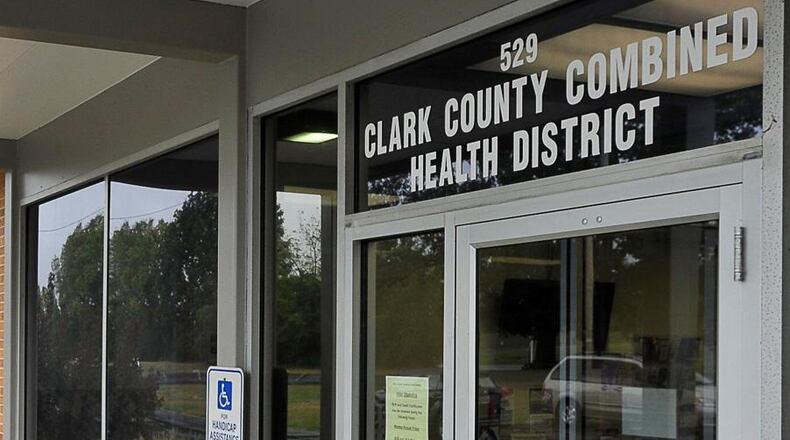Mental health concerns for Clark County residents have been brought to the forefront after the county’s first positive of COVID-19 patient, a statement from the Clark County Combined Health District said.
“Knowing that Clark County now has a positive case might exacerbate mental health concerns and stress for community members,” Dr. Greta Mayer, CEO of Mental Health Recovery Board of Clark, Greene & Madison Counties said. “This response is completely normal, but there are several steps you can take to help manage stress.”
MORE: 5 things Clark, Champaign residents need to know today about coronavirus
Mayer has a few tips for residents to manage distress related to COVID-19:
• Seek information only from reputable sources like the Ohio Department of Health, Clark County Combined Health District or Mental Health Recovery Board of Clark, Greene & Madison Countries. Residents with questions about COVID-19 can call the Ohio Department of Health COVID-19 call center, 7 days a week from 9 a.m. until 8 p.m. at 1-833-4-ASK ODH (1-833-427-5634)
• Limit media exposure. Research suggests that in times of stress, excessive media intake can lead to negative mental health outcomes. Limiting your daily media use can help reduce panic and distress.
• Find new ways to do the things that usually help you reduce stress. Many places are offering online options to continue doing what you enjoy from your living room. Churches are live-streaming services, gyms are offering free in-home classes and museums are offering virtual visiting options. Enjoying hobbies in a different way and developing a new, healthy routine will increase a sense of purpose and hope.
• Follow the recommendations of health experts. Eat well, exercise, sleep enough, stay hydrated and avoid excessive use of alcohol and drugs, in addition to following practices that will help limit the spread of COVID-19.
• Connect with others, virtually. While practicing social distancing can limit physical contact with loved ones, consider connecting virtually through phone calls, texts, video chats or social media platforms.
• Recognize symptoms of distress. Look for signs of distress in yourself, your family and your friends. Signs include persistent worry or fear, sleeping or eating either too little or too much, isolating yourself emotionally, fighting more than normal with family and friends, having difficulty concentrating, having the same thoughts repeatedly, feeling hopeless and helpless, smoking or drinking more alcohol than usual, or having thoughts of harming yourself or others.
• If you are feeling distress for an extended period of time, reach out for help. The following resources are available 24 hours a day, seven days a week at the Ohio Crisis Text Line: text “4HOPE” at 741-741, the Disaster Distress Helpline: 1-800-985-5990 or the National Suicide Prevention Lifeline: 1-800-273-8255.
“Just as physical health providers are necessary during this pandemic, so are providers delivering care for mental illness and substance use disorders,” Mayer said. “Locally, we are supporting behavioral health providers to offer assistance, supplies, funding and ensure that they are still able to deliver quality mental health and substance use services during this crisis because we know our communities need them now more than ever.”
MORE: Clark County, Miami County coronavirus cases prompt tests for 19 people
About the Author
